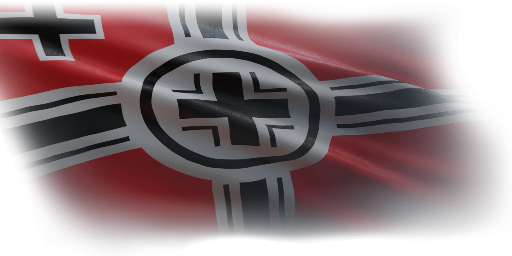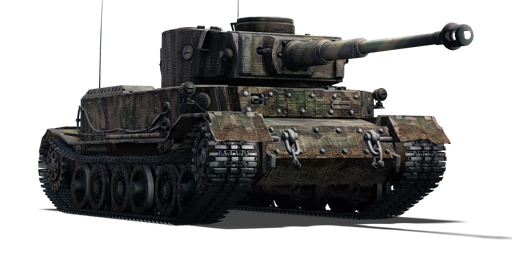



In May 1941, the Wehrmacht approached Henschel and Porsche to submit a design for a new heavy tank with a minimum weight of 45 tons and capable of mounting the 88 mm KwK L/56 cannon. The Porsche company chose to adapt the preexisting VK 30.01 prototype heavy tank design into the improved design, designated VK 45.01 (P). Like most of the Porsche-designed tanks, the VK 45.01 (P) features an electric transmission that allows the tank to travel in forward and reverse at the same speed. Porsche is so confident in the design that they preemptively produced 10 tanks and 90 chassis in anticipation that the design would be accepted for production. However, the Henschel design, later known as the Tiger I, was accepted instead. This is partly due to the Porsche design requiring a significant amount of copper for its drive system, a rare resource which the Wehrmacht chose to ration for other production.
Nevertheless, to not waste the already produced hull, the Wehrmacht ordered Porsche to convert 90 of the hulls into the Ferdinand tank destroyer, while one of the VK 45.01 (P) was kept and converted into a command vehicle for the new Ferdinands. Designated the Panzerbefehlswagen VI Ausf. P, or informally known as Tiger (P) or Porsche Tiger, the Porsche Tiger's hull was up-armored with the same reinforced armor kit as the Ferdinand. The sole Pz.Bef.Wg.VI P were assigned to the Panzerjäger Abteilung 653 in April 1944 and served until it was lost in action on July 1944.
Introduced in Update 1.45 "Steel Generals", the Pz.Bef.Wg.VI P is an up-armored version of the Porsche Tiger (VK 45.01 (P)), featuring a thick 100 mm armor plate welded onto its frontal hull. This add-on armor significantly weighted down the tank and reduced the top speed to around 30 km/h. However, thanks to its electric transmission, the Porsche Tiger is capable of reaching high reverse speeds. This allows the Porsche Tiger to retreat or re-position quickly and react to the incoming fire better. Compared to the base (Henschel) Tiger I, the Porsche Tiger leans more towards the traditional heavy tank role, capable of taking hits and pushing forward when needed.
| Ammunition | Type | Armor penetration (mm) at a distance: | |||||
|---|---|---|---|---|---|---|---|
| 10 m | 100 m | 500 m | 1000 m | 1500 m | 2000 m | ||
| APCBC | 165 | 162 | 151 | 139 | 127 | 117 | |
| HE | 18 | 18 | 17 | 15 | 14 | 13 | |
| APCBC | 153 | 151 | 140 | 128 | 116 | 106 | |
| HEAT | 110 | 110 | 110 | 110 | 110 | 110 | |
| APCR | 211 | 207 | 191 | 172 | 155 | 140 | |
| Belt | Belt filling | Armor penetration (mm) at a distance: | |||||
|---|---|---|---|---|---|---|---|
| 10 m | 100 m | 500 m | 1000 m | 1500 m | 2000 m | ||
| AP/AP/AP-T | 13 | 12 | 7 | 3 | 2 | 0 | |







 2 x (125 / 190 / 215) %
2 x (125 / 190 / 215) % 
 2 x 178 %
2 x 178 % 

Mobility | |
|---|---|
Protection |
|---|
Firepower | |
|---|---|